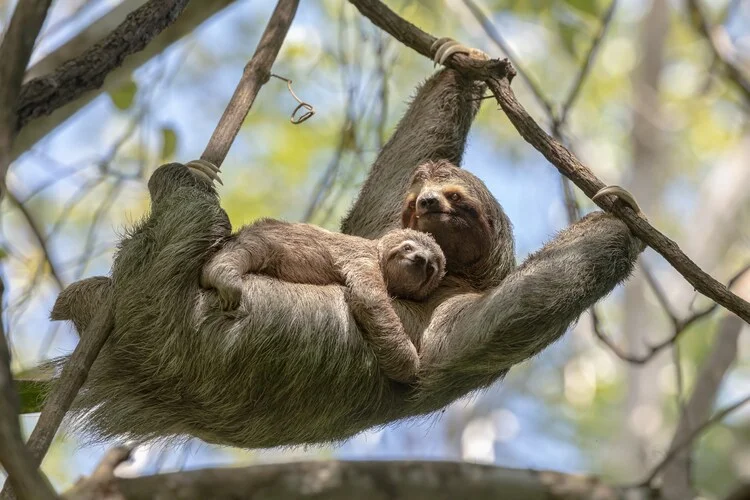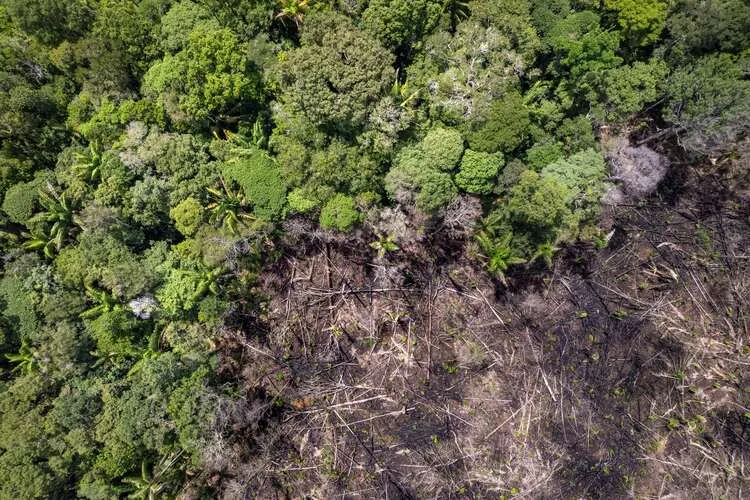
Rising temperatures across the world threaten the health of slow-moving sloths that cannot migrate to cooler ranges in the wake of climate change
By Charlotte O’Gorman Lalor
New research has uncovered that sloths’ slow metabolism and limited ability to regulate body temperature challenge their ability to adapt to climate change, particularly in high-altitude regions. Found within the tropical forests of South and Central America, sloths are subject to high temperatures made all the more warmer by climate change.
The recent study focused on 12 adult two-toed sloths, known as the Choloepus hoffmanni, from the high and low-altitude habitats of Costa Rica. The highlands are typically 3 to 9 degrees Celsius cooler than low-altitude regions, and the sloths in these areas have adaptations that include longer thicker, and darker fur. Scientists measured the sloths’ oxygen consumption and body temperature when exposed to a range of ambient temperatures, from 18 to 34 degrees Celsius, over several days.
Findings suggested that when temperatures rise above 32 degrees Celsius, sloths from low-altitude areas slow down their metabolism to cope with the heat, conserve energy and avoid overheating. Sloths from high-altitude regions do not have this ability. Their metabolism speeds up as temperatures rise, leading to higher body temperatures and greater energy expenditure.

Lead researcher Dr Rebecca Cliffe stated: ‘Sloths are inherently limited by their slow metabolism and unique inability to regulate body temperature effectively, unlike most mammals’.
Results indicate that this is compounded by the sloths’ geographical inflexibility and slow food processing rate – up to 24 times slower than similar-sized herbivores. This prevents them from increasing their food intake to meet their greater energy demands. Therefore, projected temperature increases of over two degrees Celsius by 2100 place sloths in great danger. This is particularly the case for highland sloths who face increased metabolic demands and cannot migrate to cooler, higher ranges.
The need for sloth conservation
It is not only climate change that affects sloth populations. Deforestation also causes habitat loss and land fragmentation, which reduce population sizes and increase inbreeding, which has significant health ramifications. Deforestation also alters the microclimate of sloth habitats and hinders relocation by limiting the connectivity between habitat zones. This highlights the important link between climate change and the changing environments of sloths.

Concerns over habitat loss
In 2022, the two-toed sloth was listed in The IUCN Red List of Threatened Species as a species of Least Concern. However, the results from this new study underscore the rising importance of sloth protection. This requires conservation efforts and policies aimed at mitigating climate change, supplemented by individual action – from recycling and reusing to eating greener and reducing overconsumption – all of which reduce global warming.




